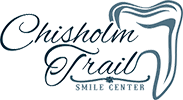Dental extractions may be needed for a number of reasons. Sometimes a tooth is too badly damaged by a cavity or a deep crack to be restored. If this happens to you, you should always proceed with the recommended extraction, as an infected tooth can ultimately lead to an abscess in the gum tissue. Dental extractions may also be needed in anticipation of orthodontic treatments or dentures.
Regardless of the cause, no one wants to hear that they’re going to need a tooth removed! Losing a permanent tooth always feels like a loss, but the good news is that it clears the way for better oral health. Plus, if you have been in constant pain due to a deep cavity, you will be very relieved when the problem tooth is finally out! If you are looking at a possible dental extraction, it’s good to know what to expect afterwards, in both the short-and the long-term.
Getting a Dental Extraction
Most extractions of erupted teeth are a fairly straightforward procedure. If the tooth is in one piece, the process will probably take only a few minutes. Simple extractions usually require only a local anesthetic, and you can usually resume eating soft foods on the same day. If your tooth is unerupted, impacted, or has separated into more than one piece, however, it may require oral surgery to remove it. During your consultation, we will take x-rays of the affected tooth and let you know what to expect.
After the procedure, you may experience some bleeding from the extraction site. We will provide you with some gauze to bite down on, to encourage the blood to clot. In the first hours after an extraction, you should avoid all sucking, spitting, smoking, or chewing. Replace the gauze if you are still experiencing bleeding after the first 45 minutes and try to use your mouth as little as possible. With time and rest, the bleeding should stop. (Call us if it does not!)
Do not try to touch or clean the extraction site for the first day. You may brush your teeth as usual, but take care not to irritate the site of your extraction. The more you can leave it alone, the quicker it will heal. If you are experiencing any sensitivity, recommended doses of over-the-counter NSAID-type painkillers (ibuprofen or naproxen) can usually help you manage the pain.
Replacing A Single Lost Tooth
After your mouth has had a chance to heal, make another appointment and we’ll tell you about your options for replacing the missing tooth. Some patients make the mistake of thinking they don’t need to have the tooth replaced (“I have plenty more teeth I can use…”) but the truth is that it does need to be replaced.
When a gap is created in the mouth, it can cause a number of changes to your bite and alignment that make you more likely to lose more teeth. As time passes, nearby teeth start to shift inward toward the open space, which can upset how your teeth fit together when you bite and chew. Ultimately this can cause some teeth to endure more damage from normal use; this may lead to teeth becoming cracked or worn down. It can also cause changes in your bite that may lead to temporomandibular joint (TMJ) disorder, which can cause painful symptoms.
Don’t let a dental extraction lead you to lose more teeth in the future. A dental bridge or dental implant and crown can help you maintain proper tooth alignment and give you back the function you lost.
Call us to make an appointment and we’ll help you decide which type of restoration is right for you. Call (580) 255-4880 after your dental extraction (Duncan OK) or schedule an appointment online to replace your missing tooth.







